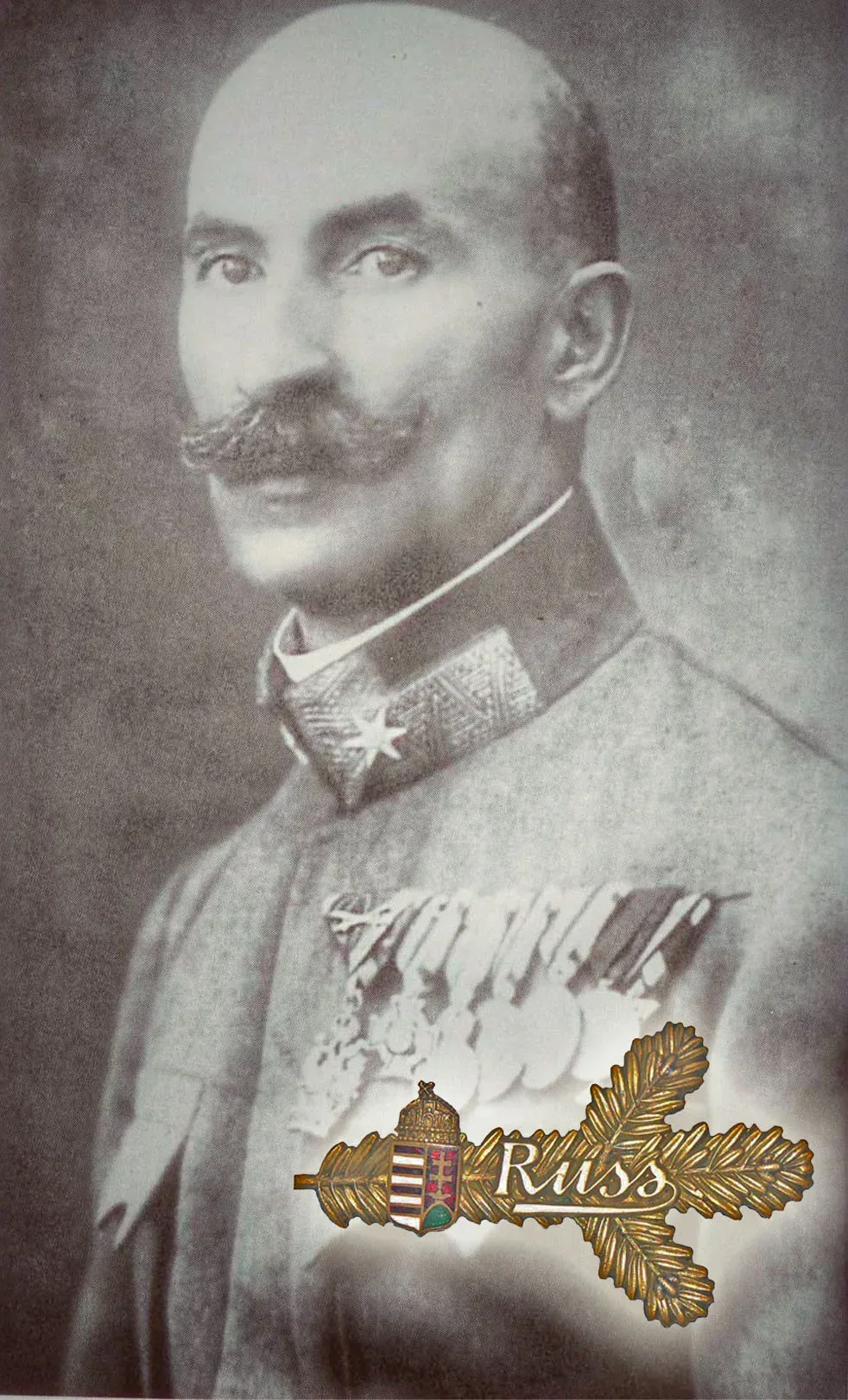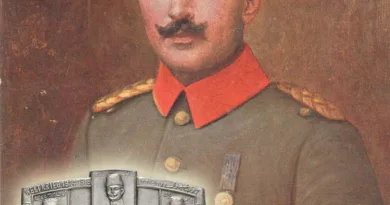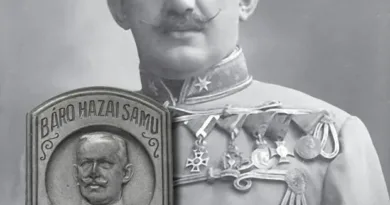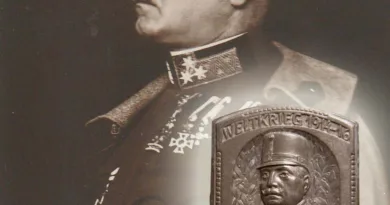Colonel Viktor Russ
This is a post of my friend Gábor Vásárhelyi, who is a dedicated Bukovina researcher and thus, of course, he also searches for the memories of Viktor Russ.
Russ was born in Borgóprund in Beszterce-Naszód County in 1872, in a family with five boys. His father was Miklós Russ, chief judge. In 1894 he graduated from the Teresianum in Vienna and was appointed as a lieutenant.
In the first half of his military career, he was sent on a reconnaissance mission to Bosnia and Montenegro. In his personal file, it was an important milestone in his military career when, he resigned in 1902 or possibly in 1907 as a staff captain. Not much can be known about him until the outbreak of World War I. He may have visited America, but he was also a dagger instructor and journalist. On July 28, 1914, at the age of 49, at the outbreak of the war, he volunteered for the 32nd Hungarian Insurgent Battalion. He began his military career as a private in Bukovina, which was then treated as a side battlefield, where Major Eduard Fischer first organized the resistance. He later served under the command of General Pflanzer-Baltin’s 2 Army. He created troops of raiding from uprising battalions who were able to successfully take up combat in the particularly difficult mountain terrain against the Russians, moving quickly and using guerrilla fighting.
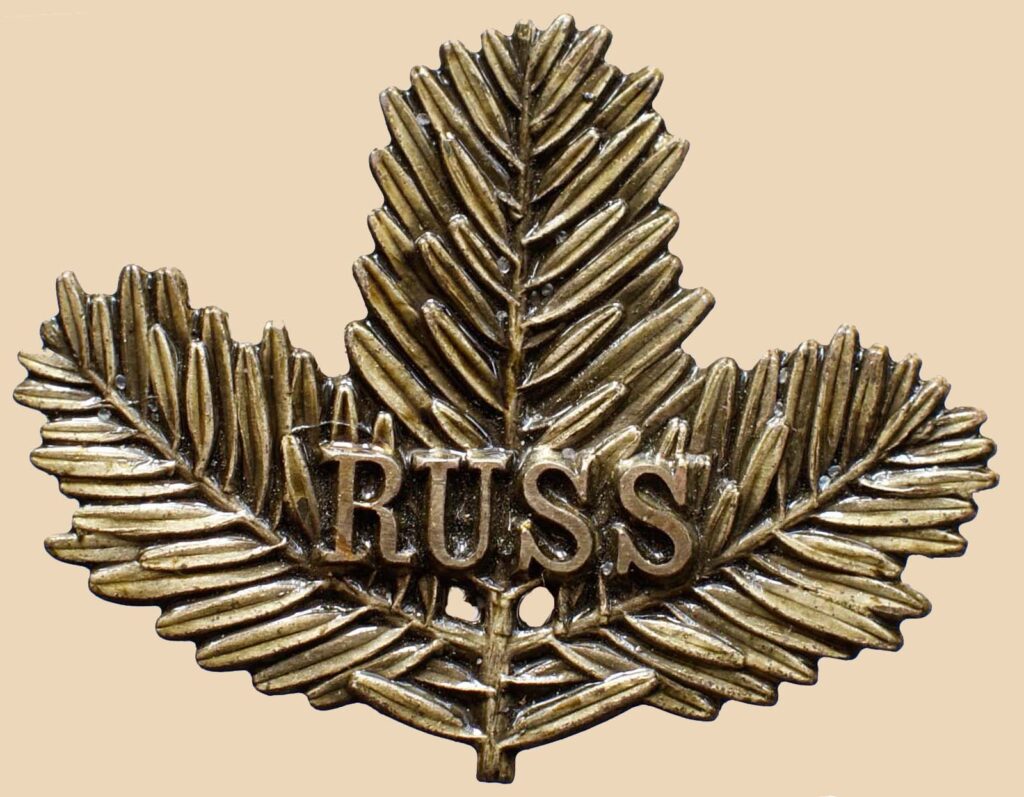
Military leaders soon recognized Russ’s military talent so he progressed rapidly in the military hierarchy. As a detachment commander, he first served in the rank of corporal, then was appointed lieutenant in 1915, then on August 29 he was a captain and by the end of November he was already a major. Not too many soldiers achieve such rapid advancement. In fact, his brave military actions soon made him known not only in the Eastern Carpathians but throughout the Monarchy and even among the Russians. He himself selected his soldiers from peasants from the counties of Doboka and Beszterce counties, who withstood the fight very well in the mountainous terrain. The detachment of two hundred soldiers was so successful that by the spring of 1916 the detachment had already caused 3,000 dead, 5,000 wounded, 4,000 prisoners of war to the Russians. Even after hearing his name, the Russians were so dreaded that one of the patrols found at the village hall of Uscie Putilla near Chernivtsi (now Ukraine) a death charge announcement:
“In a bell ore, I give 25,000 rubles to anyone who captures, alive or dead, the Austrian-Hungarian lieutenant Russ Viktor, the leader of the guerrilla team named after him. Characteristic signs: Middle-aged, skinny man, speaks German, Hungarian, Ruthenian, French, cuts his gray hair short. Its special features are that he has a gray mustache, a gold medal on his chest and is always unarmed. ”
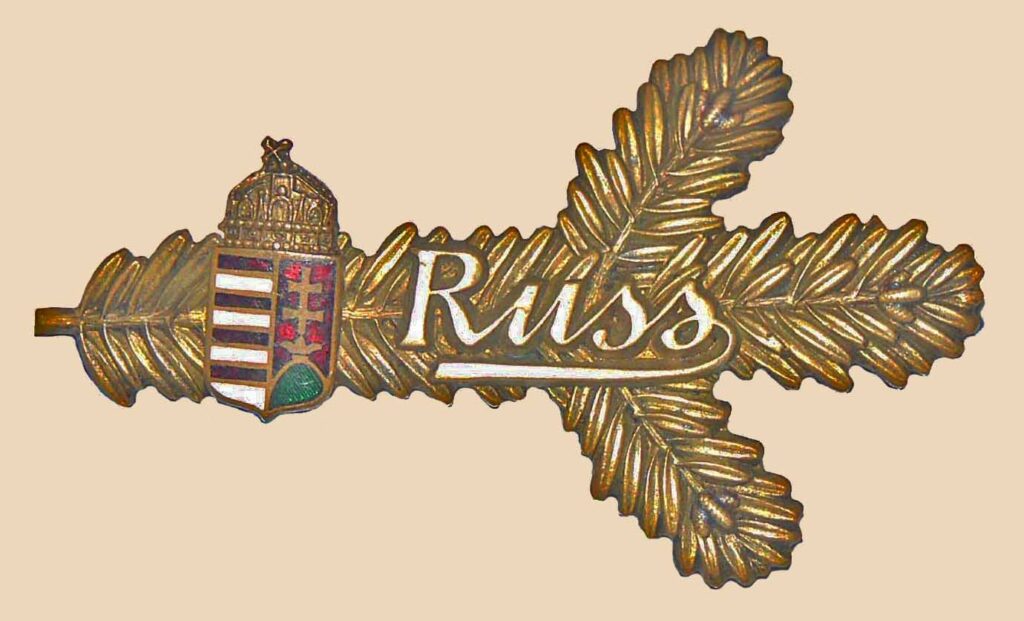
Her legendary figure then appeared among another soldier who gained fame Colonel Daniel Papp, whose brigade has fought with the Russ detachement in defense of Kirlibaba and Dorna Vatra. At the end of the fighting in Bukovina, the Russ detachment was transferred to the Italian front. Russ’s military career continued to curve upwards, receiving the rank of lieutenant colonel in February 1918 and ending his military service with the rank of colonel.
He returned from the Italian front and was treated for leukemia at the Korányi Clinic in Budapest, but to no avail. On December 28, 1918, he returned his soul to his creator. His earthly remains were taken home to his mother’s hometown of Naszód, where he was laid to rest.
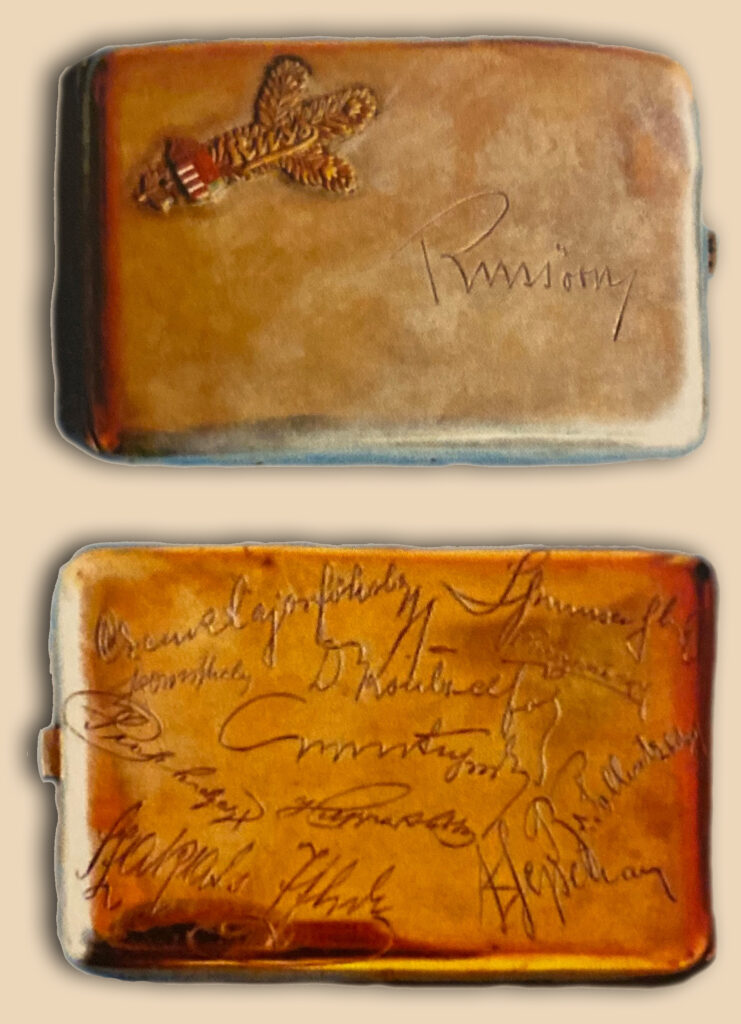
The two cap badges shown in this post are from ARKANZAS. The cigarette wallet comes from the legacy of Colonel Russ, which is kept in the museum of the town of Naszód (Nasaud).

